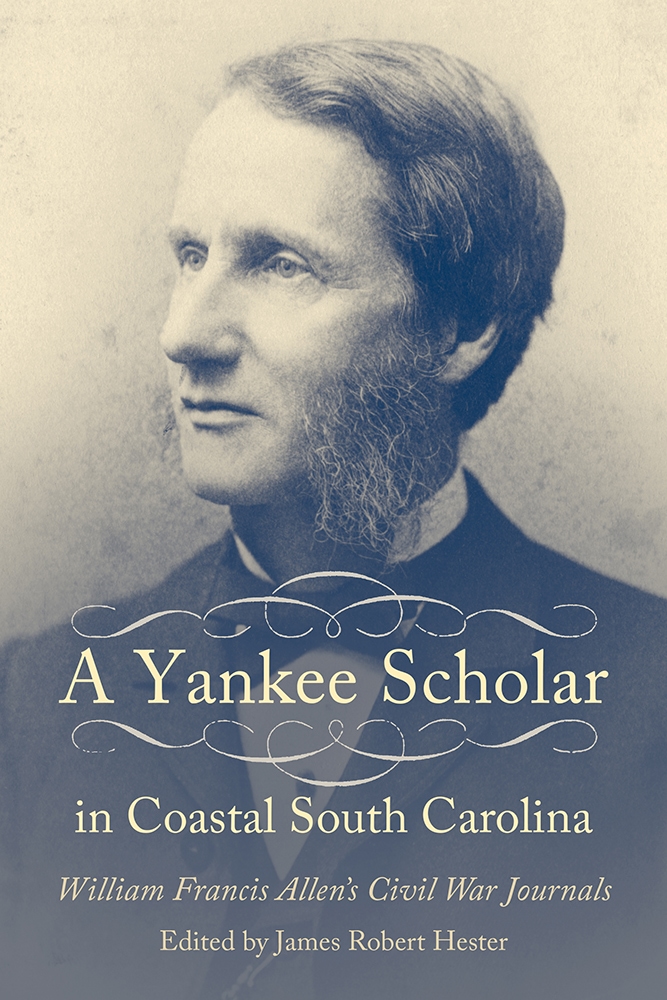Black History Month Sale: 40% off all books, plus FREE SHIPPING on all U.S. orders over $50 | Use code JBHM26

Size: 6 x 9
Pages: 344
Illustrations:
edited by James Robert Hester
The inclusion of this book in the Open Carolina collection is made possible by the generous funding of
"Hester's work is a valuable window into a long-vanished world and an excellent companion to modern works that try to explain that world to us."—Blue and Gray Magazine
"". . . A Yankee Scholar in Coastal South Carolina makes for a fascinating reading and immediately becomes an important new primary source for studying the Civil War era.""—George C. Rable
"This perceptive edition of Allen's journals not only illuminates the experiences of the dedicated educators and reformers in coastal South Carolina in the early days of emancipation but also revives the memory of a notable Nineteenth Century historian. Civil War and regional scholars alike will be grateful to Bob Hester for years to come for his careful work."—Russell K. Brown, author of To the Manner Born: The Life of General William H.T. Walker
"William Francis Allen's Civil War journals provide a remarkable glimpse into rural and urban coastal South Carolina in the closing months of the Civil War. While under Union occupation in 1863–64, and immediately after the war's end in 1865, Allen's compassionate observations as a scholar and historian, although with an understandable Northern bias, offer an insider's view of earliest efforts to educate the freed slaves. Particularly interesting are conversations he recorded with planters and long-time Carolina residents regarding their views, often surprisingly conciliatory and accepting of the inevitable fate of the South. James Robert Hester as editor has done a masterful job in interpreting, contextualizing and annotating Allen's journals, making this an essential volume for any library of Civil War literature."—Erick Montgomery, executive director, Historic Augusta, Inc.
"Hester has annotated and presented to us the remarkable journals of William Allen, an absorbing account of one man's journey South during and after the Civil War. With the unique perspective of an outsider from Massachusetts, Allen's first journal covers his work on St. Helena Island in 1863 and 1864 as part of the Port Royal Experiment. The second covers his time as superintendent of education in Charleston, SC. in 1865. A scholarly and thinking man, Allen offers first-hand impressions of the newly freed African Americans, of the degradation of slavery as a system of labor, and of his appreciation of the peoples' songs and the unfamiliar Gullah language. With comprehensive appendices of thorough primary research, Hester delivers an amazing and significant work, a noteworthy contribution to historical understanding."—Orville Vernon Burton, author of Age of Lincoln and Penn Center: A History Preserved
Copyright 2026
Website By Morweb.org